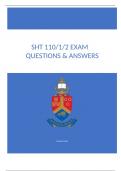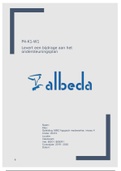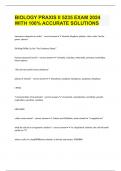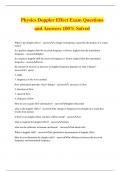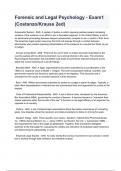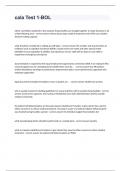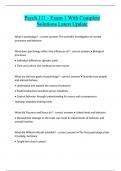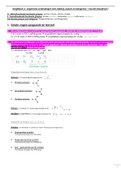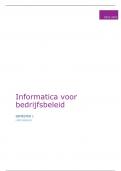Samenvatting
SHT 110, 111, 112 Exam questions and answers summary (Section B)
- Vak
- Instelling
This is a document containing all the questions and answers that students are expected to encounter and be able to provide in the SHT module exam. The document answers challenging questions regarding ethics in the field of Systematic Theology.
[Meer zien]
